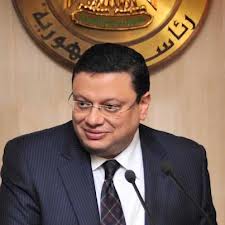The United Kingdom and Egypt have a strong record in protecting vulnerable refugees and combating irregular migration, Sir Geoffrey Adams, the British ambassador to Egypt, said on Wednesday during the event organised at the ambassador’s residence on the occasion of the World Refugee Day.
The attendees included Egyptian government officials, representatives of donor countries, members of the diplomatic community, United Nations agencies, non-governmental organisations, Egyptian civil society, businessmen, and prominent figures who support refugees.
The UK allocated over EGP 1.6bn to the region, including EGP 73.3m to Egypt, to support Egypt’s hosting of refugees in this country, the ambassador added, reaffirming his country’s commitment, and continuous work with the UN Refugee Agency (UNHCR) to raise awareness about the needs of refugees.
The UNHCR continues to see record levels of forced displacement. At the end of 2018, the number of people fleeing war, persecution, and conflict stood at 70.8 million, the highest level that the UNHCR has seen in its almost 70 years of operation, according to the UNHCR data.
Egypt is currently a host to more than 247,000 registered refugees and asylum-seekers from 56 different nationalities, mentioned the UNHCR data.
“Egypt is setting an example in the region through the hospitality of its government and people toward refugees, embracing their diversity and showing solidarity. I would like to seize the opportunity today to thank the generous donors supporting Egypt and the UNHCR to sustain this hospitality and I reiterate the urgency for additional funds to maintain the current programmes,” UNHCR Representative to Egypt and to the League of Arab States, Karim Atassi, said.
In addition to the health and education services the government of Egypt provides to refugees and asylum-seekers on equal footing with Egyptians, Atassi added that this year the Egyptian government also extended the scope of several health campaigns, initiated by the President of Egypt, Abdel Fattah Al-Sisi, to include refugees and asylum-seekers.
Examples of these campaigns include the ‘100 Million Health’ campaign to detect and treat Hepatitis C, the anti-polio campaign, and the campaign to detect obesity, anaemia, and dwarfism among primary school students, he noted.
“The United Kingdom government is no stranger to this generosity. In addition to the support the UK is providing to the UNHCR’s operations globally and its support to the UNHCR Egypt’s operation specifically, the UK is also keeping the resettlement lifeline open for vulnerable refugees in Egypt and is the operation’s third largest resettlement country after Germany and Canada in 2019,” Atassi added.
According to the UNHCR’s annual Global Trends report, the current level of forced displacement globally is double that of 20 years ago and corresponds to a population size between that of Thailand and Turkey.
This increase is not met with the same rate at which solutions are being found for people who become displaced. With refugees, the best solution is being able to return home voluntarily, in safety and dignity. Other solutions include being resettled to a third country.



